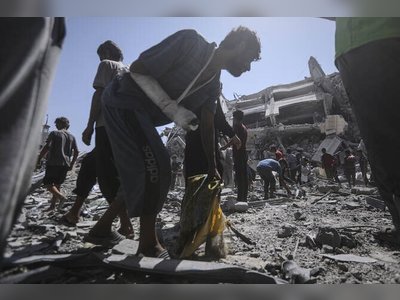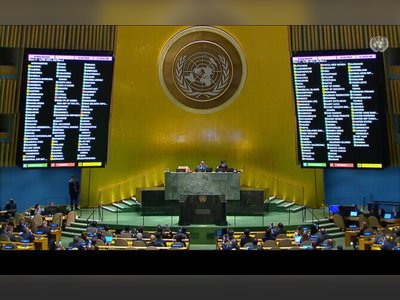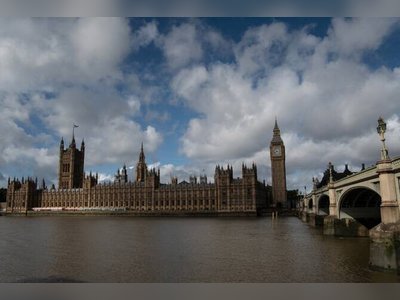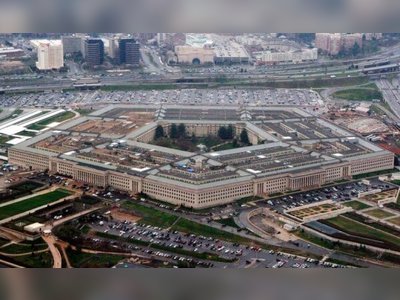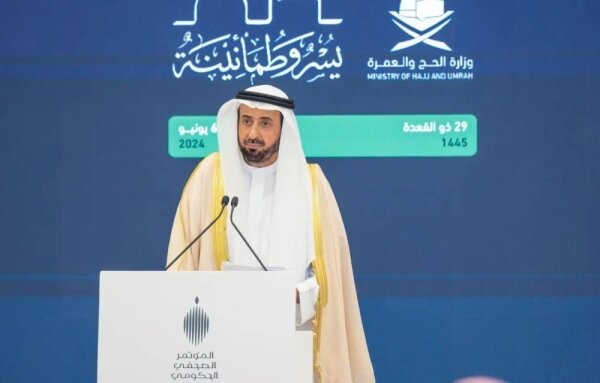
Minister of Hajj and Umrah Dr. Tawfiq Al-Rabiah: 1.2 Million Pilgrims Arrived, Smooth Entry Processes, and Continuous Improvements for the Hajj Experience
Minister Dr. Tawfiq Al-Rabiah announced the arrival of approximately 1.2 million pilgrims in Saudi Arabia by the end of Thursday.
The entry procedures were simplified, and the pilgrims expressed satisfaction and good health.
Minister Al-Rabiah attributed this success to Allah, the wise leadership, and the dedicated efforts of the sector's workers.
The Kingdom has a long history of serving pilgrims, with the leadership prioritizing their care and ease of access to the Two Holy Mosques and Holy Sites.
The minister reiterated Saudi Arabia's commitment to serving pilgrims during Hajj, with guidance from King Salman and Crown Prince Mohammed bin Salman.
He acknowledged the support of Prince Abdulaziz bin Saud bin Naif and regional princes.
Dr. Al-Rabiah emphasized the importance of pilgrim cooperation and adherence to regulations for a successful and fulfilling Hajj experience.
The Saudi Arabian leadership remains dedicated to ensuring a successful Hajj season.
Dr. Al-Rabiah, the Saudi Arabian Minister of Hajj and Umrah, emphasized the ministry's early preparations for the 2024 Hajj season.
This includes addressing challenges from previous years and fostering creative solutions to improve pilgrim services.
The ministry's commitment to preparation aligns with Kingdom's Vision 2030 goals.
Following the conclusion of the 2023 Hajj, meetings were held with government agencies to discuss initial arrangements.
The Hajj Project Management Office (Hajj PMO) was established to lead these efforts, collaborating with over 50 agencies to implement over 300 plans across 2,600 locations since Muharram 1445.
The text summarizes the efforts of the Saudi Arabian Hajj and Umrah Ministry to improve the Hajj experience for pilgrims worldwide.
The ministry's proactive approach included visiting 11 countries and holding 24 official meetings with leaders to address challenges and explore opportunities for better services.
The success of these efforts is reflected in the issuance of over one million Umrah visas in the current year, a significant increase compared to the previous year.
The ministry's leader, Al-Rabiah, expressed gratitude for the partnership of the Ministry of Foreign Affairs and emphasized the importance of pilgrim awareness and adherence to regulations.
The Saudi Arabian Ministry of Hajj and Umrah has implemented a multi-pronged approach to ensure a safe and orderly Hajj experience for pilgrims.
This includes an international campaign in over 20 countries to educate pilgrims about regulations and fraudulent practices, a national campaign emphasizing the need for permits, and the ongoing success of the Makkah Route Initiative, which has facilitated the arrival of over 250,000 pilgrims through 11 airports in seven countries.
Additionally, extensive training programs have been conducted for over 120,000 workers and pilgrim group leaders to provide excellent hospitality and service.
The minister spoke about enhancements to the Hajj service system for pilgrims.
With the promotion of competition among Hajj service companies, the number of providers has risen to 35 this year.
These companies are chosen based on their hospitality skills, financial stability, and dedication to delivering excellent service.
Previously, pilgrims from countries without organized Hajj missions had to rely on intermediaries.
To tackle this issue, the ministry introduced a direct electronic registration system, removing intermediaries and ensuring pilgrims receive the promised services.
This system was first implemented in Europe and America in 1443 and has since expanded to cover 126 countries, receiving positive feedback from involved nations.
For domestic pilgrims, a unified electronic portal simplifies the process of choosing services, while the Nusuk application offers over 120 digital services.
Al-Rabiah, the Saudi Arabian Hajj and Umrah Minister, spoke about the dedication of personnel and volunteers in the Hajj and Umrah sector.
He highlighted the construction of eleven prototype buildings accommodating 37,000 pilgrims in just nine months.
The minister also mentioned infrastructure improvements, such as a pathway project to facilitate movement around Al-Mashar Al-Haram and the installation of the world's largest air cooling and purification station in the Grand Mosque.
Additionally, transportation sector partners are continuing their development work at a rapid pace.
During the 2023 Hajj season, the Al-Mashaer train with a capacity of 72,000 passengers per hour will operate, transporting over 350,000 pilgrims between the Holy Sites.
The Ministry of Health is closely collaborating to monitor pilgrim health.
The Kingdom is fully committed to ensuring a successful Hajj season and making significant progress, supported by the initiatives of the Pilgrim Experience Program under Saudi Vision 2030.
Minister Al-Rabiah attributed this success to Allah, the wise leadership, and the dedicated efforts of the sector's workers.
The Kingdom has a long history of serving pilgrims, with the leadership prioritizing their care and ease of access to the Two Holy Mosques and Holy Sites.
The minister reiterated Saudi Arabia's commitment to serving pilgrims during Hajj, with guidance from King Salman and Crown Prince Mohammed bin Salman.
He acknowledged the support of Prince Abdulaziz bin Saud bin Naif and regional princes.
Dr. Al-Rabiah emphasized the importance of pilgrim cooperation and adherence to regulations for a successful and fulfilling Hajj experience.
The Saudi Arabian leadership remains dedicated to ensuring a successful Hajj season.
Dr. Al-Rabiah, the Saudi Arabian Minister of Hajj and Umrah, emphasized the ministry's early preparations for the 2024 Hajj season.
This includes addressing challenges from previous years and fostering creative solutions to improve pilgrim services.
The ministry's commitment to preparation aligns with Kingdom's Vision 2030 goals.
Following the conclusion of the 2023 Hajj, meetings were held with government agencies to discuss initial arrangements.
The Hajj Project Management Office (Hajj PMO) was established to lead these efforts, collaborating with over 50 agencies to implement over 300 plans across 2,600 locations since Muharram 1445.
The text summarizes the efforts of the Saudi Arabian Hajj and Umrah Ministry to improve the Hajj experience for pilgrims worldwide.
The ministry's proactive approach included visiting 11 countries and holding 24 official meetings with leaders to address challenges and explore opportunities for better services.
The success of these efforts is reflected in the issuance of over one million Umrah visas in the current year, a significant increase compared to the previous year.
The ministry's leader, Al-Rabiah, expressed gratitude for the partnership of the Ministry of Foreign Affairs and emphasized the importance of pilgrim awareness and adherence to regulations.
The Saudi Arabian Ministry of Hajj and Umrah has implemented a multi-pronged approach to ensure a safe and orderly Hajj experience for pilgrims.
This includes an international campaign in over 20 countries to educate pilgrims about regulations and fraudulent practices, a national campaign emphasizing the need for permits, and the ongoing success of the Makkah Route Initiative, which has facilitated the arrival of over 250,000 pilgrims through 11 airports in seven countries.
Additionally, extensive training programs have been conducted for over 120,000 workers and pilgrim group leaders to provide excellent hospitality and service.
The minister spoke about enhancements to the Hajj service system for pilgrims.
With the promotion of competition among Hajj service companies, the number of providers has risen to 35 this year.
These companies are chosen based on their hospitality skills, financial stability, and dedication to delivering excellent service.
Previously, pilgrims from countries without organized Hajj missions had to rely on intermediaries.
To tackle this issue, the ministry introduced a direct electronic registration system, removing intermediaries and ensuring pilgrims receive the promised services.
This system was first implemented in Europe and America in 1443 and has since expanded to cover 126 countries, receiving positive feedback from involved nations.
For domestic pilgrims, a unified electronic portal simplifies the process of choosing services, while the Nusuk application offers over 120 digital services.
Al-Rabiah, the Saudi Arabian Hajj and Umrah Minister, spoke about the dedication of personnel and volunteers in the Hajj and Umrah sector.
He highlighted the construction of eleven prototype buildings accommodating 37,000 pilgrims in just nine months.
The minister also mentioned infrastructure improvements, such as a pathway project to facilitate movement around Al-Mashar Al-Haram and the installation of the world's largest air cooling and purification station in the Grand Mosque.
Additionally, transportation sector partners are continuing their development work at a rapid pace.
During the 2023 Hajj season, the Al-Mashaer train with a capacity of 72,000 passengers per hour will operate, transporting over 350,000 pilgrims between the Holy Sites.
The Ministry of Health is closely collaborating to monitor pilgrim health.
The Kingdom is fully committed to ensuring a successful Hajj season and making significant progress, supported by the initiatives of the Pilgrim Experience Program under Saudi Vision 2030.
Translation:
Translated by AI



